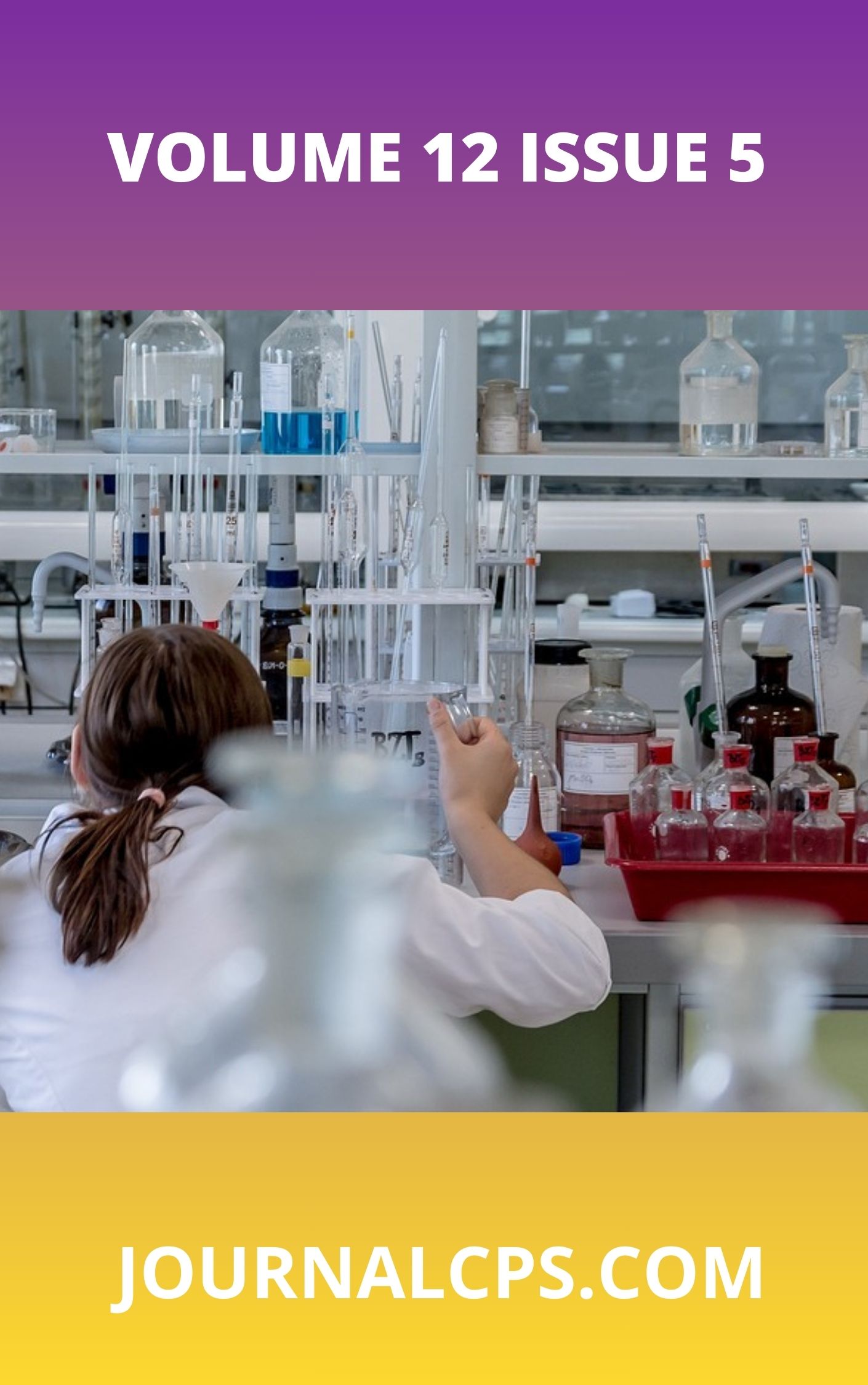Facies and geochemical characteristics of the Igumale Formation, Lower Benue Trough, Nigeria
Keywords:
carbonates, Facies, Geochemistry, Lower Benue Trough, FormationsAbstract
This research examines the carbonates textures, chemical composition, and depositional settings of carbonate rocks collected from the Igumale region in the Lower Benue Trough, Nigeria. This approach integrates X-ray Diffraction (XRD) for mineralogical identification, X-ray Fluorescence (XRF) for geochemical characterization, and thin section petrographic examination for microfacies analysis, this research aimed to unravel the compositional attributes and interpret the paleoenvironmental conditions within these Cretaceous carbonate sediments. The petrographic analysis of the Igumale samples revealed two distinct carbonate microfacies: a sandy bioclastic wackestone, indicative of a lower energy setting with detrital siliciclastic input and significant fossil accumulation, and a micritic bioclastic packstone, suggesting a slightly higher energy environment with closely packed bioclastic grains within a fine-grained carbonate matrix. The XRD analysis revealed a substantial presence of calcite as the dominant mineral phase, underscoring the primary carbonate composition of the Igumale Formation. The XRF analysis revealed that calcium oxide (CaO) and its constituent element, calcium (Ca), as the most abundant oxide and element, respectively, further corroborating the calcitic nature of these rocks. Petrographic interpretations, based on the textural and compositional characteristics of the identified microfacies and their fossil content, strongly suggest that the Igumale Formation was deposited within a shallow marine environment, potentially transitioning into tidal flat settings, influenced by both biological activity and terrigenous input. The findings offer valuable insights into the geological history of the Lower Benue Trough, highlighting the mineralogical makeup, textural diversity, and dominant depositional environments of the carbonate rocks in the Igumale Formation, thereby enhancing the understanding of the basin's Cretaceous sedimentary development.
Most read articles by the same author(s)
- Bertha Onyenachi Akagbue Akagbue, Mu’awiya Baba Aminu , Effect of Na-22, Cl-36, 3-H, and P-32 Exposure on Laboratory Clinical Researchers , Communication In Physical Sciences: Vol. 9 No. 4 (2023): VOLUME 9 ISSUE 4
- Daniel Chukwunonso Chukwudi, Identifying Erosion-Prone Areas in the Mackinaw Watershed Using Geospatial Techniques , Communication In Physical Sciences: Vol. 12 No. 5 (2025): Vol 12 ISSUE 5
- Changde A. Nanfa, Musa O. Kizito, Fabian Apeh Akpah, Jimoh J. Bolaji, Mu’awiya Baba Aminu, John O. Wale , Faith Fehintoluwa Oye, Rebecca Juliet Ayanwunmi, Samson Ayobami Akinbunmi, Investigation Of Basement Aquifer Hydraulics And Protective Capacity Within Jimgbe And Environs, North Central Nigeria , Communication In Physical Sciences: Vol. 12 No. 3 (2025): VOLUME 12 ISSUE 3
- Daniel Chukwunonso Chukwudi, Michael Oladunjoye, Geophysical Exploration of Coastal Saline Water Intrusion: A Study of Ikoyi and Banana Island, Lagos State , Communication In Physical Sciences: Vol. 9 No. 4 (2023): VOLUME 9 ISSUE 4
- Mu’awiya Baba Aminu, Andrew Nanfa, Godwin Okumagbe Aigbadon, Simon Dalom Christopher, Idoko Eleojo Friday, Andarawus Yohanna, Abdulbariu Ibrahim, Sadiq Mohammed Salisu, Pam Dajack Dung, Francisco Sokin Paca, Simeon Tobias, Geology, Geochemical and Petrographic Studies of Lokoja Sandstone Facies: Implications on Source Area Weathering, Provenance and Tectonic Settings , Communication In Physical Sciences: Vol. 9 No. 4 (2023): VOLUME 9 ISSUE 4
Similar Articles
- Emmanuel U. Nwazue, Chinedu U. Ibe, Petrography and Geochemical Studies of Eyingba Lead-zinc Mineralization, Lower Benue Trough , Communication In Physical Sciences: Vol. 5 No. 3 (2020): VOLUME 5 ISSUE 3
- Henry Ekene Ohaegbuchu, Boniface Ikechukwu Ijeh, Paul Igienekpeme Aigba, Obinna Christian Dinneya, Integrated Geophysical Study of Geothermal and Mineralization Potential for Energy and Strategic Resources in the Lower Benue Trough, Nigeria , Communication In Physical Sciences: Vol. 12 No. 7 (2025): Volume 12 issue 7
- Uzoma Nwokoma Esomchi, , Obinna. Christain. Dinneya, , Chukwunenyoke Amos-Uhegbu, , Solape Simeon Fadeyi, MAGNETIC RESPONSE ANALYSES IN PARTS OF SOUTHERN BENUE TROUGH: IMPLICATIONS FOR MINERAL PROSPECTING , Communication In Physical Sciences: Vol. 12 No. 3 (2025): VOLUME 12 ISSUE 3
- Vincent Oseikhuemen Binitie, Ogaga Esharive, Solid mineral potential in the southern Benue Trough: A review , Communication In Physical Sciences: Vol. 11 No. 4 (2024): VOLUME 11 ISSUE 4
- Mu’awiya Baba Aminu, Andrew Nanfa, Godwin Okumagbe Aigbadon, Simon Dalom Christopher, Idoko Eleojo Friday, Andarawus Yohanna, Abdulbariu Ibrahim, Sadiq Mohammed Salisu, Pam Dajack Dung, Francisco Sokin Paca, Simeon Tobias, Geology, Geochemical and Petrographic Studies of Lokoja Sandstone Facies: Implications on Source Area Weathering, Provenance and Tectonic Settings , Communication In Physical Sciences: Vol. 9 No. 4 (2023): VOLUME 9 ISSUE 4
- Benjamin Odey Omang, Temple Okah Arikpo, Eyong Gods’will Abam, Godwin Terwase Kave, Asinya Enah Asinya, Anthony Adesoji Onasanwo, The Geochemistry and Petrogenesis of the Iron-Bearing Sediments of Mfamosing, Southeastern (SE), Nigeria: Evidence from Major Oxides and Its Implication for Industrial Utilization , Communication In Physical Sciences: Vol. 11 No. 4 (2024): VOLUME 11 ISSUE 4
- Azuka Ocheli, Godwin Okumagbe Aigbadon, Nkonyeasua Abanjo, Subsurface Lithologies and Rock Eval Pyrolysis Analyses of Amansiodo-I and Akukwa-1 Well Sections, Nkporo Formation, Southeastern Part of the Anambra Basin, Nigeria: Implication for Petroleum Source Rock Potentials , Communication In Physical Sciences: Vol. 9 No. 2 (2023): VOLUME 9 ISSUE 2
- Ola-Buraimo Abdulrazaq Olatunji. , Umar Hamida, Geochemical Properties of Kalambaina Formation: Implication on Limestone and Marlstone Qualities for Industrial Uses, Sokoto Basin, Nigeria , Communication In Physical Sciences: Vol. 11 No. 4 (2024): VOLUME 11 ISSUE 4
- Ola-Buraimo Abdulrazaq Olatunji, Umar Hamida, Geochemical Properties of Kalambaina Formation: Implication on Limestone and Marlstone Qualities for Industrial Uses, Sokoto Basin, Nigeria , Communication In Physical Sciences: Vol. 11 No. 4 (2024): VOLUME 11 ISSUE 4
- Azuka Ocheli, Godwin Okumagbe Aigbadon, Mineralogical and geochemical evaluations of Quaternary sedimentary clay formation, Niger Delta Basin, Nigeria: Depositional environments, provenance and paleoclimatic outcomes in Umukwata and its environs case study , Communication In Physical Sciences: Vol. 13 No. 2 (2026): Volume 13 Issue 2
You may also start an advanced similarity search for this article.




